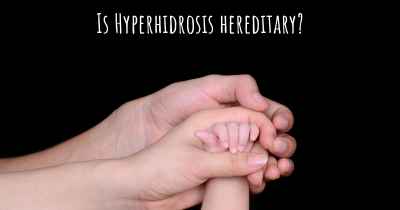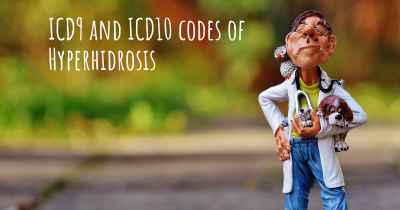Hyperhidrosis diet. Is there a diet which improves the quality of life of people with Hyperhidrosis?
Are you aware of a diet that can improve the quality of life of people with Hyperhidrosis? Is there a diet that is suggested to avoid when having Hyperhidrosis? See if there is a diet that can improve the quality of life of people with Hyperhidrosis, recommended and to avoid food when having Hyperhidrosis

Hyperhidrosis Diet: Improving Quality of Life
Hyperhidrosis is a condition characterized by excessive sweating, which can significantly impact a person's quality of life. While there is no specific diet that can cure hyperhidrosis, certain dietary changes may help manage the symptoms and improve overall well-being. It is important to note that these dietary recommendations are not a substitute for medical advice, and individuals should consult with their healthcare provider for personalized guidance.
1. Stay Hydrated
Drinking an adequate amount of water is essential for maintaining overall health and regulating body temperature. While it may seem counterintuitive, staying hydrated can actually help manage hyperhidrosis. When the body is dehydrated, it tries to compensate by producing more sweat to cool down. By drinking enough water throughout the day, you can prevent dehydration and potentially reduce excessive sweating.
2. Limit Trigger Foods
While there is no specific hyperhidrosis diet, certain foods and beverages are known to trigger sweating in some individuals. These triggers can vary from person to person, so it is important to identify your own triggers through trial and error. Common trigger foods include spicy foods, caffeine, alcohol, and hot beverages. Limiting or avoiding these triggers may help reduce sweating episodes.
3. Increase Magnesium Intake
Magnesium is an essential mineral that plays a role in various bodily functions, including nerve and muscle function. Some studies suggest that magnesium deficiency may contribute to excessive sweating. Incorporating magnesium-rich foods into your diet, such as leafy green vegetables, nuts, seeds, and whole grains, may help regulate sweating. Additionally, magnesium supplements can be considered under medical supervision.
4. Consume B-vitamins
B-vitamins, particularly vitamin B12, are important for maintaining healthy nerve function. Some individuals with hyperhidrosis may have underlying nerve dysfunction, and ensuring an adequate intake of B-vitamins may help support nerve health. Good sources of B-vitamins include meat, fish, eggs, dairy products, and fortified cereals. If you have dietary restrictions or suspect a deficiency, consult with a healthcare professional.
5. Avoid Triggering Spices
Spices like garlic, onions, and curry are known to increase body temperature and stimulate sweat glands in some individuals. While these spices can add flavor to meals, they may exacerbate sweating in people with hyperhidrosis. Experiment with milder alternatives or use them sparingly to see if it helps manage your symptoms.
6. Maintain a Healthy Weight
Excess weight can contribute to sweating as it increases overall body temperature. By maintaining a healthy weight through a balanced diet and regular exercise, you can potentially reduce the severity of hyperhidrosis symptoms. Additionally, regular physical activity can help improve overall well-being and manage stress, which may indirectly impact sweating.
7. Manage Stress Levels
Stress and anxiety can trigger excessive sweating in many individuals, including those with hyperhidrosis. Incorporating stress management techniques into your daily routine, such as deep breathing exercises, meditation, yoga, or engaging in hobbies, can help reduce stress levels and potentially alleviate sweating episodes.
8. Consider Dietary Supplements
While dietary supplements should not replace a balanced diet, certain supplements may have potential benefits for individuals with hyperhidrosis. For example, sage supplements have been traditionally used to reduce sweating. However, it is important to consult with a healthcare professional before starting any supplements to ensure safety and effectiveness.
While these dietary recommendations may help manage hyperhidrosis symptoms, it is crucial to remember that each individual is unique, and what works for one person may not work for another. It is always recommended to consult with a healthcare professional for personalized advice and to rule out any underlying medical conditions.
Posted Oct 3, 2017 by William 1020








